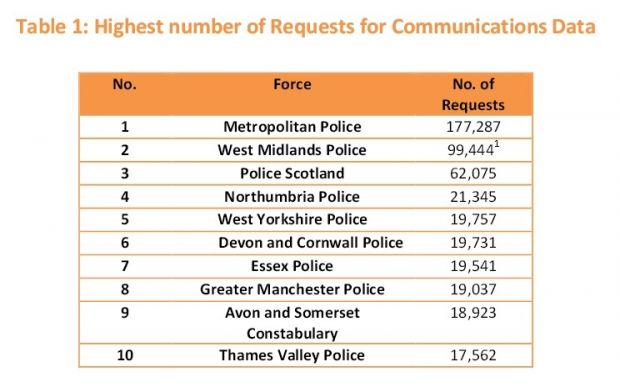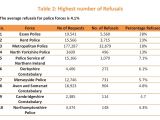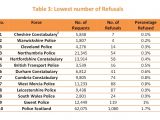Statistics provided by the Big Brother Watch group highlight the extreme high frequency at which British police forces request access to personal user data and communications, as reported by The Registry.
Just under a week after a new snooping law was proposed in the Queen's Speech, this report comes to show how abused and inefficient this kind of laws can be, and will surely help detractors of the Investigatory Powers Bill.
Let's break down the numbers...
The report highlights how from 2012 to the end of 2014, police investigators made 733,237 requests for accessing personal communications data, and a whopping 96% of them were approved.
This means that every hour 28 cops will try to access personal information, and only one will get denied. Or even simpler, every two or three minutes, a British cop asks for access to personal communications data.
The highest number of requests for personal communications data came from the Metropolitan Police, followed by the West Midlands Police, Police Scotland, and Northumbria Police.
The lowest numbers of refusals percentage-wise was given to Cheshire Constabulary and Warwickshire Police forces, while the Essex Police and the Kent Police forces received the most refusals, with a whopping 28% and 23% rate.
What can be done to improve the process
Currently, British police forces are not constrained in publishing any type of reports regarding these inquiries, which makes the entire data exposed through this report look worse than it actually is.
More transparency would help police forces and regulators alike, and a better solution would be the introduction of judicial approvals for all requests.
At this moment, police investigators have only to file a complaint with an ISP or online service (Google, Facebook, etc.) without a judge's approval, and answering these requests is at the company's discretion.

 14 DAY TRIAL //
14 DAY TRIAL // 



